Projects & co-productions
(UPDATING IN PROGRESS)
Visit Synergistics for background, methods, themes, projects, tools
Welcome to the Projects & co-production pages
Here is an ongoing set of projects, each one an experiment in the ‘Laboratory for collective intelligence ’ – developing and testing the synergistic methods & tools.
Synergistics is an art and a science, and a theory and practice. It has evolved over a decade, through many projects, on many themes, such as: urban / regional development: smart technology: energy / environment: policy / governance: foresight / innovation and collective intelligence.
The projects shown here are each exploring different kinds of pathways towards a collective intelligence. You will see a variety of synergistic tools and knowledge management systems. Each project larger or smaller, is a test-bed, an experimental process with a collaborative community.
 Beyond Technical (Finland)
Beyond Technical (Finland)
Finland is a beautiful and well organized country. But with rapid urbanization, there are growing problems of sprawl, polarization and rural decline. The ‘Bemine’ project (English = ‘Beyond Technical’) project explores pathways for urban development with transformation in economic, technology and governance systems. The Synergistic toolkit is used to help the cross-fertilization of over 60+ research outputs, and the building of integrated ‘Envisions’.
 Risk & Resilience (Australia)
Risk & Resilience (Australia)
This ‘R&R’ programme in Melbourne is a live exploration on the frontiers of resilience thinking. The rising seas and gathering storms of the coming decades call for more than just the building of walls. To adapt and co-evolve, we need to look at how society works, learns, thinks and communicates. The Synergistic methods here point towards the concepts of Resilience-III, and the potential to link resilience action to wider transformations.
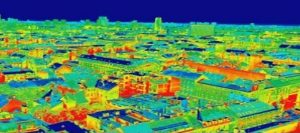 Mini-Lab (UK)
Mini-Lab (UK)
Everywhere public services are called to do ‘more with less’, with the benefit of ‘joined up thinking’. The Mini-Lab (Metropolitan INnovation & Intelligence Laboratory) is creating a small pilot demo, a prototype for a collective intelligence program. The theme is energy efficiency and low carbon housing retrofit, together with a wider environmental governance. This aims towards a ‘multi-versity’ of learning and thinking, which links policy makers and civic society with researchers in Greater Manchester.
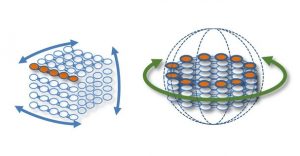 Smart-Wise Sustainable Cities (India)
Smart-Wise Sustainable Cities (India)
Generally, smart city technologies are powerful and innovative, but disruptive of social and economic structures: with risks of power grabs, data extraction, exploitation and widening inequality. This calls for a new agenda – ‘Smart-Wise Inclusive Cities’ (SWIC). This steers the smart innovation process, towards societal policies: i.e. social inclusion, anti-poverty, sustainable business, sustainable livelihoods and effective open governance. This project is a small R&D pilot to test the synergistic methods and tools, and the scaling up to a global urban program.
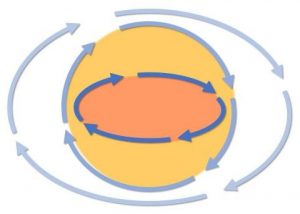 Looper – Learning Loops in the Built Environment
Looper – Learning Loops in the Built Environment
Looper is setting up 3 ‘Living Labs’ in Brussels, Manchester, and Verona. These are new models for experimental design and innovation at the community level, for practical problems such as air quality, road safety, noise, crime or greenspace. The Looper aims to explore the ‘learning loops’, which transform information into knowledge: knowledge into learning: learning into action: and action into feedback (and further learning). The concepts are adapted from Synergistic thinking, which helps to define direct ‘single loop’: strategic ‘double-loop’: and reflexive ‘multi-loop’ learning for the Lab itself.
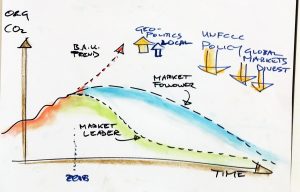 Low carbon futures (Qatar)
Low carbon futures (Qatar)
Qatar may be at a crossroads in environmental history. With the world’s third-largest natural gas reserves its wealth is huge, but vulnerable. Everything could change with international climate change policy, market effects, or national priorities. For the shift to renewable energy, there is a clear advantage for the first mover. All this points to a Foresight-III approach to building capacity, for collaborative learning, thinking, creating and doing.
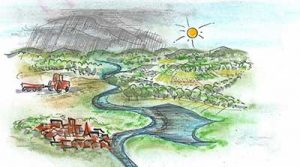 Water governance (GM)
Water governance (GM)
Water governance is split across public, private and civic sectors: there are many gaps, overlaps and barriers to integrated catchment management. To design more effective governance structures, we can use Synergistic principles. Then we can address the whole of the water cycle: supply, demand, water quality, groundwater, flood risk management and drainage.
Peri-cene
(exploring the ‘peri-urban eco-anthropocene’)
From space, the human impact on the planet is seen by the spread of cities, but cities themselves are spreading into much larger areas of sprawl, around and between them. The planet has arguably entered the ‘Peri-cene’ – a new global human-environment system shaped by peri-urbanization. The PERI-CENE project provides the first ever comprehensive assessment of global peri-urbanisation, with its climate impacts, risks and vulnerabilities. For more see http://peri-cene.net
‘Ground Zone’ & the Liveable City Toolkit
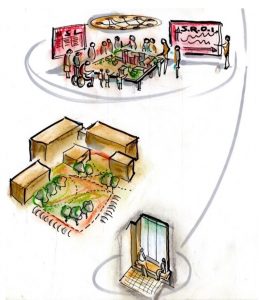
The Ground Zone project is an collaboration between the Manchester Urban Institute, and architects / urban designers Callison RTKL. In a 4-month pilot, funded by the University ‘Innovation Lab’ program, we aim to produce:
- A ‘Liveable city pilot’: a case study of the Ground Zone or public realm, which demonstrates how physical urban design can combine with ‘social design’.
- A ‘Liveable city toolkit’ (demo version) – as a practical resource for general use.
The ‘ground zone’ is where building activities and users, meet the urban context & public realm – a kind of ‘liveable city interface’.
Eco-wise resilient cities
(updating in progress)
“An international comparison study of hazard resilient cities: From risk evaluation to developing pathways” , funded by the Ministry of Science and Technology in China,
Partners: Hunan University, China: University of Manchester & Cardiff University, UK
The ‘Resilient city’ has become the focus of current research on disaster prevention and mitigation and urban safety construction.
See Eco-wise resilient cities for detail.
Local-wise
(Urban participatory research & knowledge loops)
The ‘Local-wise’ program, (funded by ESRC via UOM), has two main aims:
- External – knowledge exchange / co-production between UOM and the wider community;
- Internal – inter-disciplinary ‘participatory research’ within UOM & partners.
These will be provided via three main actions:
- Demonstration: of participatory research, via a short pilot project, which sets up further funding;
- Training: provide an outline of good practice in participatory co-production, for future research proposals and funding programs;
- Evaluation: of some example recent projects, with implications for institutional learning.
See the Local-wise page for details and updates
Mexicali bio-regional
This visiting professorship in 2018 took place in a 10 day program at the University of Baja California Mexicali.
See details on Mexicali project
